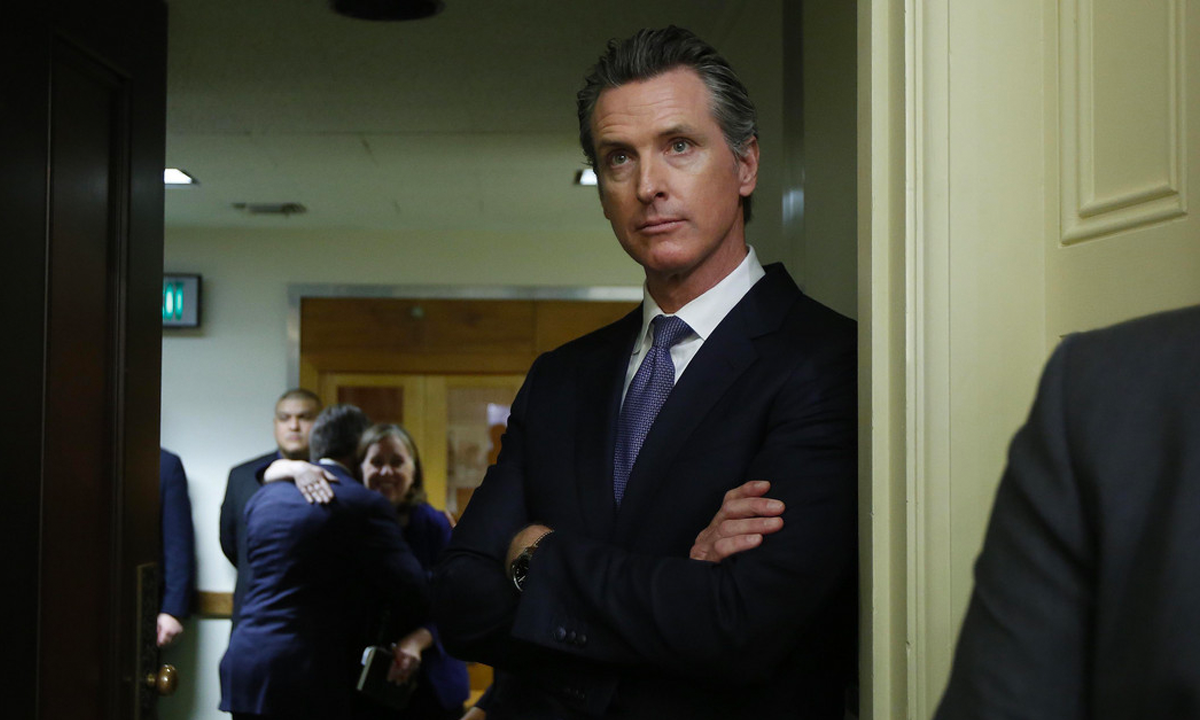Written by Natalia Toliver
Despite the dismissal from Governor Newsom’s administration, many people believe he owes the public an explanation as to why certain companies, such as Blue Shield, UnitedHealth, Bloom Energy, and BYD, were picked to handle the COVID-19 pandemic in California.
The public, as well as CapRadio’s Investigation, have found more than half a dozen companies were given the opportunity to help the COVID-19 crisis with a no-bid contract. These same companies have made substantial contributions to Newsom over the years. Although State law allows there to be no-bid contracts in a state of emergency, there are suspicions over conflict of interest, with the no-bid contracts ranging from $2 million to over $1 billion.
Government ethics experts reviewed CapRadio’s findings and found that not all companies who poured money into Newsom received no-bid contracts, but still cautioned Newsom, who is facing a recall, to remain aware about appearances of favoritism.
Erin Mellon, spokesperson for the governor said, “The Governor’s Administration made the decision to enter into all contracts related to the COVID-19 response based on the best interests of the state and protecting health and welfare of all our residents.” In response, Dan Schunr, political communications professor at UC Berkeley and former GOP consultant, said, “The governor and his team needed to make more of an effort to explain to the people of California why these decisions didn’t violate the public trust, and why his donors were given these opportunities.”
Here is a breakdown of the companies who received no-bid contracts and why they have raised some concerns.
- Blue Shield: They contributed $342,000 to Newsom and his ballot measure campaign
- They received a $15 million contract to lead vaccine distribution
- UnitedHealth: They contributed $220,400 to Newsom and his ballot measure campaign
- Their subsidiaries received at least $492 million worth of pandemic contracts
- Bloom Energy: They contributed $85, 200 to Newsom
- They received a $2 million contract to refurbish ventilators
- BYD: They contributed $40,000 to Newsom
- They received a $1.3 billion contract for masks
- FivePoint: They contributed $25,000 to Newsom
- Emile Haddad, CEO of FivePoint, was appointed to the State’s Task force on Business and Job recovery
- Later FivePoint contributed another $31,000
- Pacific6: What raises suspicion about this hospital is the timing of how things worked out. In 2018, the hospital was shut down due to being on a fault line and was not up to seismic standards. When the pandemic started, and the possibility of COVID-19 overwhelming California, Pacific6 co-founder, John Molina, took this opportunity to hurry up the opening. In mid-March, state lawmakers sent a letter to Newsom, urging to send emergency funds so the hospital could re-open. Unfortunately for months the hospital remained closed and did not receive any emergency funds. In December the state completed their final inspection and the hospital reopened. What raises suspicions is the timing of reopening shortly after Pacific6 had contributed $34,000 in October and $10,000 in November to Newsom.
- Blue Flame: California wired $456.9 million to Blue Flame, a company that had only been around for three days. Six hours later, California pulled back their money. It is unclear why California made this decision. The next day, the Washington Post reported that the U.S. Justice Department was opening a criminal investigation into Blue Flame Medical.
Stern, a government ethics expert, said, “If anybody gives [him] $100,000, the governor knows it — probably $20,000, the governor knows it. You’ll probably find thank you notes being sent out and maybe even phone calls from the governor.” Stern adds the Newsom’s office should be more aware of the appearances being created of favoritism towards major donors.
Mike Netter, co-founder of California Patriot Coalition, a group leading the recall effort, says, “Gov. Newsom is showing that he’s not transparent. This is a really bad look to the people of California [who] expect honesty and transparency from their government.”
AP Photo/Rich Pedroncelli




